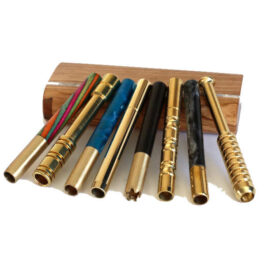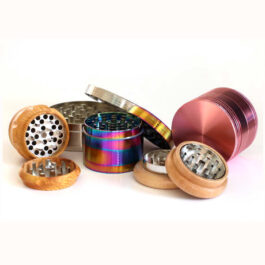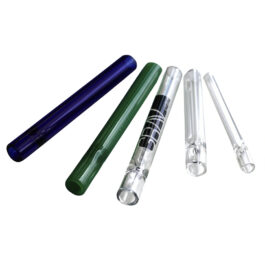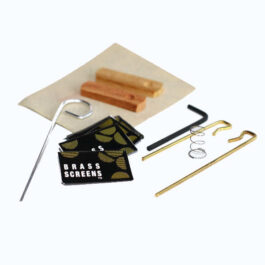With the explosive growth of e-commerce, online head shops have become increasingly popular destinations for smoking accessories, glassware, and related products. However, this surge in digital marketplaces has also created opportunities for fraudulent operators to exploit unsuspecting consumers. Knowing how to identify a legitimate online head shop is crucial for protecting your financial information, ensuring product quality, and avoiding legal complications.
Research demonstrates that online shopping fraud continues to rise, with billions of dollars lost annually to illegitimate retailers. When it comes to specialized markets like head shops, the stakes are even higher due to product regulations, age restrictions, and the prevalence of counterfeit items. This comprehensive guide will equip you with the knowledge needed to distinguish trustworthy vendors from potential scams.
Why Online Head Shop Legitimacy Matters
Shopping from illegitimate online head shops poses multiple risks that extend far beyond losing money on a purchase. Understanding these dangers helps emphasize why thorough verification is essential before making any transaction.
Protecting Your Financial and Personal Information
Expert analysis reveals that fraudulent websites often serve as fronts for identity theft operations. When you provide payment information, addresses, and personal details to illegitimate sites, you risk having this sensitive data sold to criminal networks or used for unauthorized transactions.
Studies confirm that fake retailers frequently use unsecured payment processing systems that expose customer credit card information to cybercriminals. Additionally, many scam sites store personal data without proper encryption, making it vulnerable to data breaches.
Ensuring Product Quality and Safety
According to research, counterfeit smoking accessories and vaping products pose serious health and safety risks. Fake vaporizers may contain harmful materials, while counterfeit glass pieces often break easily and can cause injuries. Legitimate head shops work with verified manufacturers and maintain quality control standards that protect consumers.
Data from leading sources shows that authentic products come with proper warranties, safety certifications, and customer support. Illegitimate retailers typically offer no recourse when products fail or cause problems.
Key Indicators of a Trustworthy Online Head Shop
Recognizing legitimate online head shops requires examining multiple factors that demonstrate professionalism, security, and customer commitment. These indicators work together to create a comprehensive picture of business legitimacy.
Website Security and Professional Design
A legitimate head shop invests in proper website security and professional presentation. Look for HTTPS encryption in the URL (indicated by a lock icon in your browser). This ensures that data transmitted between your device and the website remains encrypted.
Scientific evidence indicates that professional websites feature consistent branding, high-quality product images, detailed descriptions, and error-free content. Legitimate retailers maintain clean, user-friendly interfaces that inspire confidence rather than suspicion.
Transparent Business Information
Trustworthy online head shops provide comprehensive contact information including:
- Physical business address (not just a P.O. box)
- Multiple contact methods (phone, email, live chat)
- Clear “About Us” section with company history
- Detailed privacy policy and terms of service
- Business registration or license information when applicable
Research shows that legitimate businesses welcome customer contact and maintain transparency about their operations. Test their responsiveness by calling or sending an email with questions before making a purchase.
Authentic Customer Reviews and Reputation
Data reveals that genuine customer feedback serves as one of the most reliable indicators of business legitimacy. Look for reviews across multiple platforms including:
- The company’s own website
- Third-party review sites like Trustpilot or Google Reviews
- Social media platforms and community forums
- Better Business Bureau ratings
Authentic reviews typically include specific details about products, shipping experiences, and customer service interactions. Be wary of overly generic positive reviews or sites with exclusively five-star ratings, as these often indicate fake feedback.
Secure Payment Processing
Legitimate head shops offer multiple secure payment options including major credit cards, PayPal, or other recognized payment processors. According to experts, reputable businesses never request payment via wire transfers, cryptocurrency only, or unusual methods that offer no buyer protection.
Look for recognized security badges from payment processors and verify their authenticity by clicking on them. These badges should link to verification pages that confirm the site’s security status.
Legal Compliance and Age Verification
Studies confirm that legitimate online head shops take legal compliance seriously, implementing robust age verification systems and clearly stating shipping restrictions. They should prominently display age requirements and refuse sales to minors through verified ID checking systems.
Trustworthy retailers also provide clear information about shipping restrictions by state or region, demonstrating awareness of local laws governing their products.
Red Flags That Signal Potential Scams
Recognizing warning signs helps you avoid fraudulent websites before compromising your information or money. These red flags often appear in combination, creating patterns that indicate illegitimate operations.
Suspiciously Low Prices and Unrealistic Deals
While everyone appreciates good deals, prices significantly below market average often indicate counterfeit products or scam operations. Research demonstrates that legitimate retailers have consistent overhead costs and profit margins that prevent drastically below-market pricing.
Be particularly cautious of sites offering high-end glass pieces or vaporizers at prices that seem too good to be true. These deals often result in receiving cheap knockoffs or nothing at all.
Poor Website Quality and Communication
Expert analysis reveals that scam sites frequently exhibit poor construction quality including:
- Numerous spelling and grammatical errors
- Broken links or missing pages
- Low-quality or stolen product images
- Inconsistent design elements
- Missing or inadequate contact information
Legitimate businesses invest in professional web development and content creation, while scammers often create sites quickly and cheaply.
Lack of Customer Service Response
Data from leading sources shows that unresponsive customer service strongly indicates illegitimate operations. Test the retailer’s communication by asking questions about products, shipping, or return policies. Legitimate businesses typically respond within 24-48 hours with helpful, detailed answers.
Be suspicious of sites that only offer contact forms without phone numbers or email addresses, as this creates barriers to customer communication.
Your Verification Checklist
Before making any purchase from an online head shop, complete this comprehensive verification process:
- Verify HTTPS encryption and professional website design
- Research the company’s physical address and contact information
- Test customer service responsiveness with questions
- Check reviews across multiple platforms and look for detailed feedback
- Confirm secure payment options and avoid unusual payment methods
- Verify age verification systems and legal compliance statements
- Compare prices with other retailers to ensure reasonability
- Check Better Business Bureau ratings and complaint histories
- Look for manufacturer partnerships and authorized dealer status
- Confirm clear return, refund, and shipping policies
According to research, taking time to complete this checklist significantly reduces the risk of encountering fraudulent retailers and ensures a positive shopping experience.
Protecting Yourself From Online Head Shop Scams
If you encounter a suspicious website or believe you’ve been scammed, take immediate action to protect yourself and help others avoid similar situations.
Contact your bank or credit card company immediately if you’ve provided payment information to a suspicious site. Most financial institutions offer fraud protection and can reverse unauthorized charges when reported promptly.
Report suspected scams to the Federal Trade Commission, Better Business Bureau, and relevant state consumer protection agencies. This helps authorities track fraudulent operations and warn other consumers.
Studies indicate that sharing experiences on review platforms and community forums helps build collective awareness of illegitimate retailers, protecting fellow consumers from similar scams.
The landscape of online head shops continues evolving as legitimate businesses adopt new security measures and regulations become more defined. By following these verification strategies and maintaining healthy skepticism, you can confidently identify trustworthy retailers while avoiding the pitfalls of fraudulent operations. Remember that taking time to verify legitimacy before purchasing ultimately saves money, protects personal information, and ensures you receive quality products from reputable sources.


















